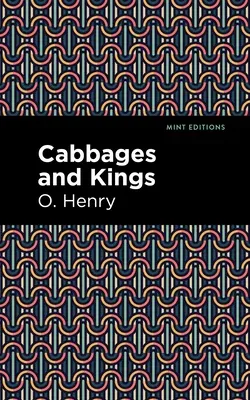Cabbages and Kings (1904) is a novel by American writer O. Henry.
Inspired by his experiences as a fugitive in Honduras, the
interconnected stories that make up Cabbages and Kings--the title
refers to a line from Lewis Carroll's Through the Looking
Glass--address themes of revolution, imperialism, exploitation, and
greed. The novel is significant not only for launching O. Henry's career
as a successful professional writer, but for coining the term "banana
republic," now frequently used to describe the influence of American
fruit companies over such nations as Honduras. In the fictional nation
of Anchuria, the political reality and social life of its people are
under attack--from within and without. An American businessman in the
coastal town of Coralio receives a telegram from the capital city of San
Mateo announcing that there has been a revolution. President Miraflores
has fled to the coast, taking with him $100,000 from the federal
reserve. Sensing opportunity, Goodwin gathers a posse to hunt down the
fugitive leader, tracking him to a nondescript inn in Coralio. Cornered,
Miraflores kills himself, and Goodwin elopes with the President's lover,
taking the money with them. Although a liberal government has
successfully risen to power, widespread corruption and deep poverty
threaten to thrust Anchuria into further chaos. Cabbages and Kings is
a collection of stories centered on this troubled tropical nation, where
greed supersedes honor and the interests of the people are sold to the
highest bidder. Despite or perhaps because of its critique of American
influence in Latin America, Cabbages and Kings was a critical and
commercial success for O. Henry, establishing his reputation as a master
storyteller with a profound sense of right and wrong, and everything in
between. With a beautifully designed cover and professionally typeset
manuscript, this edition of O. Henry's Cabbages and Kings is a classic
of American literature reimagined for modern readers.


